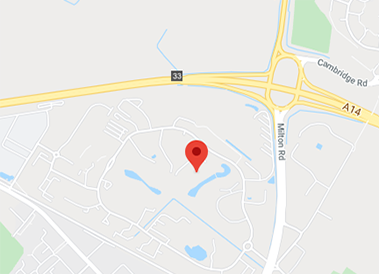Cambridge, 2 September 2019: Toshiba Research Europe Ltd (TREL), BT, the National Physical Laboratory (NPL) and the University of Cambridge, today announce that they will join the OPENQKD pilot project to install a test quantum communication infrastructure across Europe. The initiative will boost the security of critical applications in the fields of telecommunications, healthcare, electricity supply and government services.
Within the OPENQKD project, TREL will adapt its world-leading quantum key distribution (QKD) technology to demonstrate use cases for quantum security in networks in several European cities. TREL will supply commercial grade QKD systems to the networks, while BT will contribute its expertise on the requirements needed for robust operation in a network provider environment.
The networks will provide a testbed for the long-term verification of QKD technology, as well as a platform for the development of applications in different sectors and industrial standards. Healthcare use cases, developed through a collaboration between the University of Cambridge, TREL and BT, will be a particular focus of a network linking several biotech campuses in Cambridge, which has one of the highest concentrations of health sector companies in Europe.
The development of industrial standards, as well as a security evaluation process, for quantum technology in Europe is another important aspect of the OPENQKD project, to which NPL, BT and TREL will contribute strongly. Standards are essential for ensuring interoperability of QKD equipment and other devices in the network, enabling their seamless integration. They are also important for ensuring that new products are implemented in a secure manner and without potential vulnerabilities. The project will also develop ways in which the security of QKD systems can be tested against the published standards.
Andrew Shields, Assistant Managing Director at Toshiba’s Cambridge lab, commented: “Quantum communication technology is maturing very rapidly, with several large networks now in operation around the world. OPENQKD has a focus upon developing and demonstrating use cases for QKD technology, which will accelerate its commercial adoption in a number of different market sectors. We are delighted to contribute to this ecosystem of companies developing complete solutions that will secure the future IT infrastructure of European businesses and citizens.”
Andrew Lord, Head of Optical Research at BT, added: “We have been trialling QKD technology for several years now and see potential for its commercial exploitation in telecom networks. In OPENQKD we will be developing the necessary tools and knowledge for integration into operator networks and customer applications.”
Hannes Hübel, scientist at the AIT Austrian Institute of Technology, and project leader of OPENQKD: “After successfully demonstrating the basic concept of QKD, quantum based cryptography has achieved a mature state and we are proud to lift quantum technology now onto a market-ready level — ready to be deployed in everyday-life applications.”
About the OPENQKD Project
The Europe Commission chose to fund OPENQKD following a Horizon 2020 call for proposals in 2018. Its mission is to develop an experimental testbed based on QKD and to test the interoperability of equipment supplied by different manufacturers. OPENQKD’s activities will take place all over Europe (in Austria, Spain, Poland, Germany, Netherlands, Switzerland, France, Italy, UK, Greece and the Czech Republic). It will focus on several key fields of operations, especially the telecommunications sector, where data traffic in transit and at rest needs to be secured. Other applications, such as securing medical and governmental data or the transmission of secure control signals in the electricity grid will also be demonstrated and evaluated.
In addition, OPENQKD will address the development of a European ecosystem for quantum technology providers, application developers. It will also work to identify new use-cases by supporting start-ups and SMEs, as well as offering modern test facilities to new quantum stakeholders. A further objective for the project is to devise standards and security certifications for this infrastructure.
To achieve its ambitious goals, the OPENQKD project will last three years and have a budget of €15 million. Its consortium consists of 38 partners from 13 Member States and Horizon 2020 Associated States. The consortium partners cover a wide range of competences including quantum equipment manufacturers, network operators, system integrators, small and medium-sized enterprises, Research and Technology Organisations, universities, certification and standardisation bodies and end users.
Professor Tim Whitley, head of research for BT, and MD of Adastral Park, said: “This is a further important step in the commercial development of quantum cryptography. Our secure quantum communication showcase at Adastral Park already demonstrates how financial institutions can secure links between offices and branches and off-site data centres, which are prevalent throughout the financial sector. The application of twin-field QKD would extend that capability to sites anywhere in Europe, for example, making it possible to securely network an organisation at a national and international level.”
--- End ---
Contacts:
Toshiba QKD press team:
+44 (0)20 7921 9940
[email protected]
About Toshiba
Toshiba Corporation leads a global group of companies that combines knowledge and capabilities from over 140 years of experience in a wide range of businesses—from energy and social infrastructure to electronic devices—with world-class capabilities in information processing, digital and AI technologies. These distinctive strengths position Toshiba to become one of the world’s leading cyber-physical-system technology companies. Guided by the Basic Commitment of the Toshiba Group, “Committed to People, Committed to the Future,” Toshiba contributes to society’s positive development with services and solutions that lead to a better world. The Group and its 132,000 employees worldwide secured annual sales surpassing 3.9 trillion yen (US$37.2 billion) in fiscal year 2017. Find out more about Toshiba at
About BT
BT’s purpose is to use the power of communications to make a better world. It is one of the world’s leading providers of communications services and solutions, serving customers in 180 countries. Its principal activities include the provision of networked IT services globally; local, national and international telecommunications services to its customers for use at home, at work and on the move; broadband, TV and internet products and services; and converged fixed-mobile products and services. BT consists of four customer-facing units: Consumer, Enterprise, Global and Openreach.
For the year ended 31 March 2019, BT Group’s reported revenue was £23,428m with reported profit before taxation of £2,666m.
British Telecommunications plc (BT) is a wholly-owned subsidiary of BT Group plc and encompasses virtually all businesses and assets of the BT Group. BT Group plc is listed on stock exchanges in London and New York.
QKD at Toshiba Research Europe Ltd
TREL has conducted quantum R&D in Europe for over 25 years. Since 2002, TREL has been actively involved in research on QKD, demonstrating the first QKD system operating over 100 km of fibre, the first with a secure key rate exceeding 1 Mb/s and the ability to multiplex quantum and multiple data channels on the same fibre simultaneously.
More recently TREL developed a compact prototype for high performance QKD, offering world leading performance. Recently TREL has extended the secure key rate to over 10 Mb/s, corresponding to ~40,000 256-AES keys per second, for the first time and also invented and demonstrated a new protocol, called “Twin field QKD”, that can greatly extend the range of a QKD link beyond 500 km.
TREL has been actively involved in field trials of the technology. It was a core partner of the EU funded SECOQC project that demonstrated a QKD network in Vienna in 2008 and more recently has taken part in field trials in Japan and the UK, including the UK Quantum Network funded by the EPSRC Quantum Technology Hub in Quantum Communications, demonstrating long term stable operation of the technology. TREL lead the AQUASeC project in the UK, funded by InnovateUK through the Industrial Strategy Challenge Fund, developing next generation QKD technology. TREL is also the Chair of the ETSI ISG-QKD, producing the first standards for QKD technology.
About the National Physical Laboratory
The National Physical Laboratory (NPL) is the UK’s National Measurement Institute and is a world-leading centre of excellence in developing and applying the most accurate measurement standards, science and technology available. These standards underpin an infrastructure of traceability throughout the UK and the world that ensures accuracy and consistency of measurement. We undertake research and share our expertise with government, business and society to help enhance economic performance and the quality of life. NPL is an active participant in the work of the ETSI ISG-QKD where it has led the drafting of two recent specification documents scoping and specifying measurement protocols for QKD components. NPL’s main contribution to OPENQKD will be in the work package focussing on Standardisation and Certification. Its role will be to test the quantum layer implementation security of hardware that will be deployed in the testbeds. The National Physical Laboratory is operated by NPL Management Ltd, a wholly-owned company of the UK Government Department for Business, Energy & Industrial Strategy (BEIS)
About the Department of Engineering, University of Cambridge
The Department of Engineering is the largest department at the University of Cambridge and one of the leading centres of engineering in the world. Renowned for both its teaching and research, the Department's aim is to address the world's most pressing challenges with science and technology. To achieve this aim, the Department collaborates with other disciplines, institutions, companies and entrepreneurs.
QKD at the University of Cambridge
Cambridge University Engineering Department’s Centre for Photonic Systems has nearly 30 years of experience in optical data communications research, with particular emphasis on applying new technologies to communication systems.
It is a partner in the EPSRC Quantum Technology Hub in Quantum Communications, within which it has built the Cambridge quantum network in partnership with TREL and, with BT, the UKQNTel network. It has developed novel approaches in routed quantum networks, quantum alarms, CV-QKD, allowing simultaneous key and data distribution, and key management.
Within OPENQKD it will develop a metropolitan scale network which will feature a fully meshed topology enabled by QKD links providing Mb/s secure bit rates. The test bed will be used to develop quantum technologies for securing private medical data and records in transit and at rest.
Latest Publications
Davide G. Marangon, Peter R. Smith, Nathan Walk, Taofiq K. Paraïso, James F. Dynes, Victor Lovic, Mirko Sanzaro, Thomas Roger, Innocenzo De Marco, Marco Lucamarini, Zhiliang Yuan & Andrew J. Shields
J. A. Dolphin T, ENG, T. K. Paraïso T, H. Du T, R. I. Woodward T, D. G. Marangon T and A. J. Shields T





